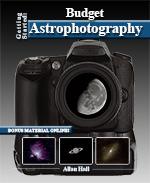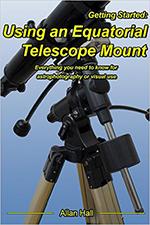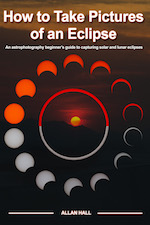Last night I was able to not only view, but image a total lunar eclipse. There are a lot more lunar eclipses than there are solar for us to view. That doesn’t make them any less amazing. The weather cooperated wonderfully as a front blew through earlier in the day making sure that the air was extremely clear, although cold. As the clock passed 1:30am the shadow on the moon started to grow. At first it was so dim you really didn’t even notice it. It took me looking at the moon through binoculars and at the images from two different camera’s before I was sure it had started.
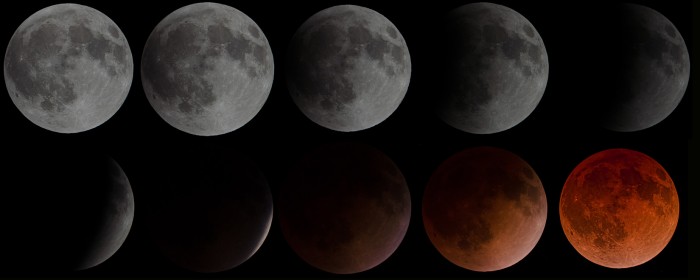

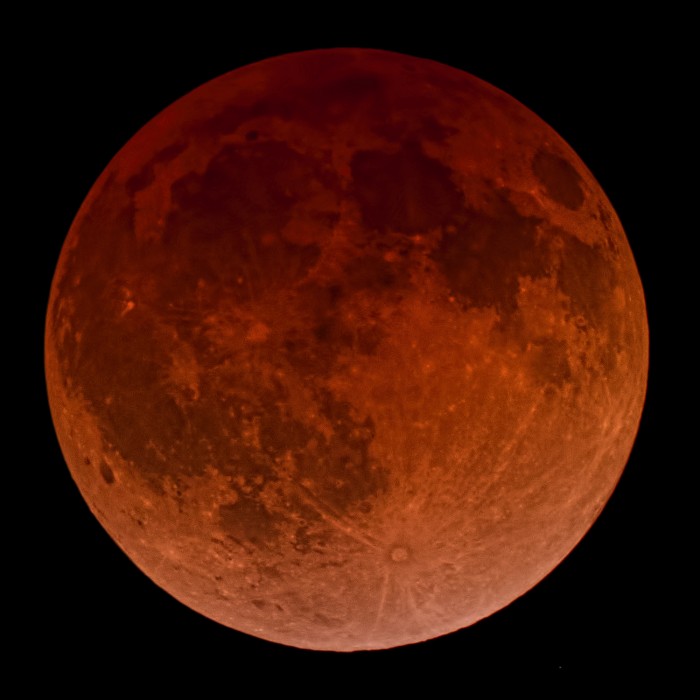

If you haven’t seen a total lunar eclipse in person you really should make it a point. The next two are October 8th of 2014 and April 4th of 2015 for a good portion of North America.
You can read more about a lunar eclipse at Wikipedia.
Share this post!





